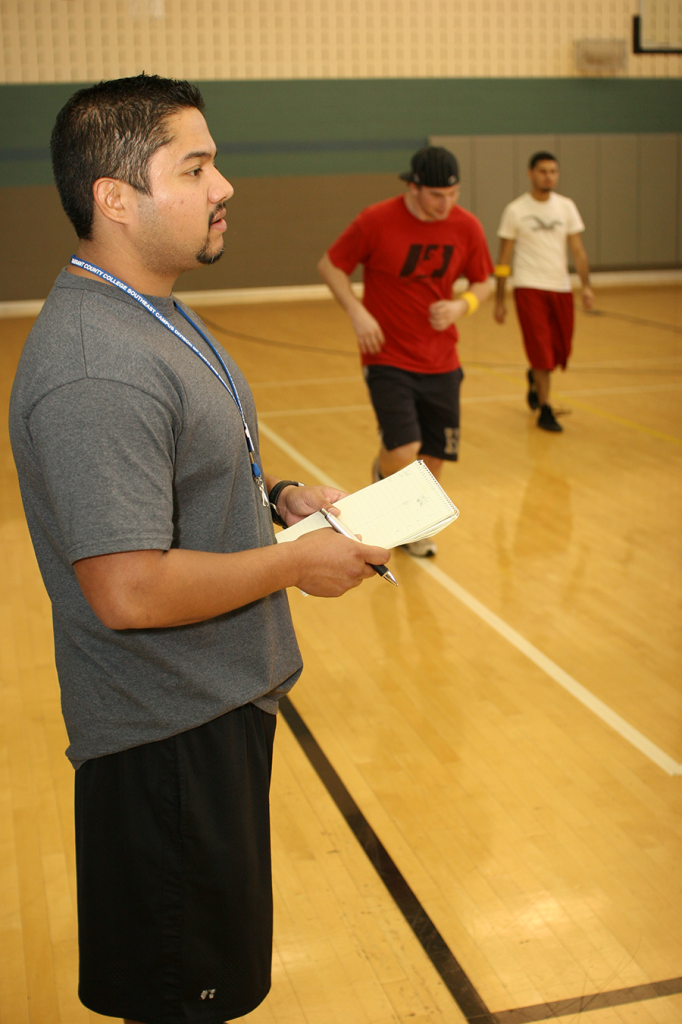By Shelly Williams/editor-in-chief
U.S. District Court Judge Terry Means interjected as attorneys questioned TCC’s Interim Chancellor Erma Johnson Hadley during a federal free speech trial, stating that TCC had an “undifferentiated fear and had no tangible reason to have that fear” despite shooting threats.
The American Civil Liberties Union and current and former students Clayton Smith and John Schwertz Jr. presented evidence against TCC during three days of hearings earlier this month stating the school denied students’ free speech rights in April 2008 and 2009. The students filed a lawsuit in November after TCC denied a third request to wear empty gun holsters on campuses protesting for the right to bear arms on the college premises.
Hadley and Chief of Police Frank Buchanan testified that TCC’s main purpose in its decision against the protest was the safety of the students, not the denial of free speech rights. Buchanan said often times it’s not easy to tell if a gun holster is filled or unfilled, and his main concern was making sure everyone went home safe at the end of the day.
“I have no interest in prohibiting free speech, and we [TCC] welcome debate,” Hadley said. “We’re not interested in stifling those debates. I will admit that the free speech zones are something TCC shouldn’t have had, and we won’t go back.”
Around the time of the first request to protest in 2008, TCC police were alerted to a shooting threat on NE Campus. Graffiti was found in a men’s restroom stating the day it would happen.
Police investigated this threat as well as a report around the same time from a teacher who was fearful of a student in her class.
The teacher reported that the student talked of re-enacting the Virginia Tech shootings and held up a metal rod, acting as if he were shooting students in the back of the head, Hadley said.
“I do want to emphasize we didn’t make the decision lightly. As a matter of fact, we agonized over it,” Hadley said in her testimony as to why the college said no to the protests.
However, Fort Worth lawyer and ACLU representative David Broiles, along with Means, had a different perspective on the reasons behind the denied request for protest.
“If we allow the things that could happen to control us, we will have darn near little expression at all,” Means said.
“We thought we had an exception under the law,” Hadley said in response. “But whatever the law allows, that’s what TCC will allow.”
One of the major concerns of Broiles and the students came after the lawsuit was filed. On Dec. 18 and Jan. 7, TCC made revisions to the student handbook regarding the school’s free speech policies and regulations.
However, Broiles said during the trial that he wanted the rules and regulations to conform for regulations of the court and that the present change in the student handbook was not found in the policies of the school.
“The student handbook was not forwarded to the Texas Association of School Boards for incorporation of the policies,” said Bill Lace, interim vice chancellor for administrative and community services, from the stand.
He said TCC was told by TASB, an organization of statewide school board members, that the college was not allowed to change any legal policies sent by the organization and that the handbook fell under that guideline.
Means said he was in shock by TCC’s choice to obey TASB despite the fact that TASB is not a government organization.
“It blows my mind that you all [TCC] think you’re constrained by TASB,” Means said during Lace’s examination.
“TASB told TCC they can’t change the policy and must find another way to make it constitutional,” Lace said in response.
“You [TCC] have some re-examination to do,” Means replied.
Lace said TASB objected to all modifications, but that the changed handbook regulations were approved by Hadley. Hadley said the college originally contracted with TASB to make sure all policies were legally sound, but the contract expired Dec. 31.
She said the school relied heavily on the TASB for guidance.
“If we erred, it was on the intention of keeping our students safe. We aren’t upset. It’s a learning process,” Hadley said during a trial recess.
“We had guidance and now we have new guidance and we can use that. I talked with the students [who filed the suit] before this trial and they’re really wonderful students.”
Means told attorneys to submit final closing arguments in writing by Jan. 28, and the court case adjourned until further notice.
The restraining order issued by Means in November allowing empty-gun holster protests on the college property has been extended until the final ruling on the case.
As each side talked pleasantly, shook hands and wished each other good luck, Means said federal judges live in hopes of a wonderful First Amendment case, and that this was his.


























